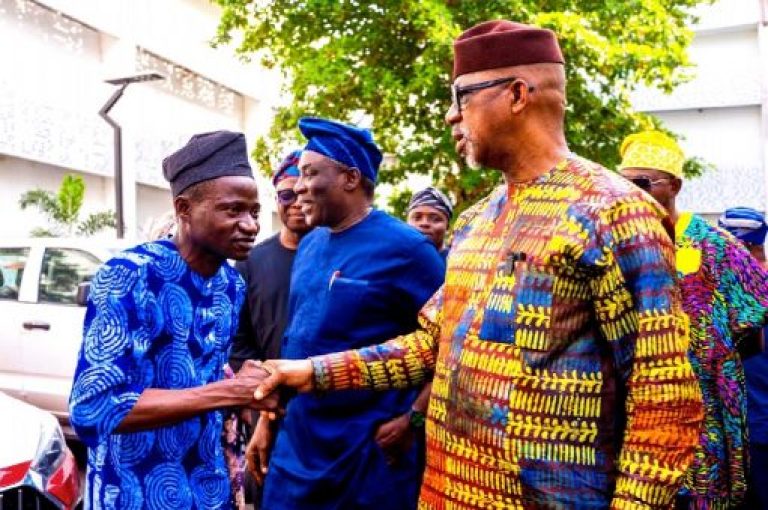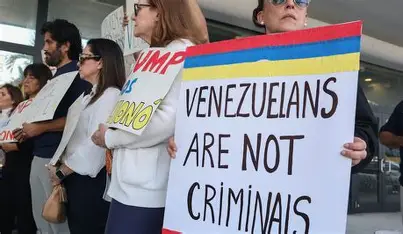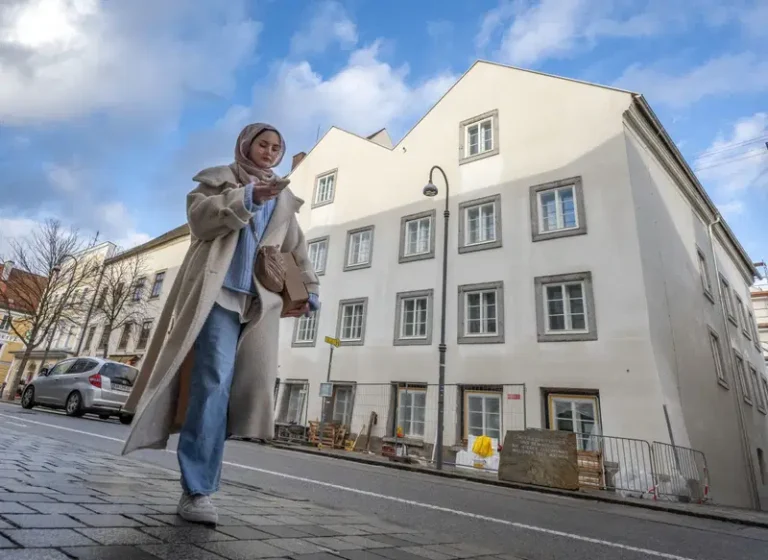
Something quite dear to the heart of Governor Godwin Obaseki is the discernible revolution his government has wrought in the education sector in Edo State which other states are trying to emulate.
Obaseki spoke about what prompted the transformation which started about seven years ago, and the voyage so far, when our crew met with him at Government House, Benin-City, penultimate Thursday, reports Sunday Vanguard.
He also shed light on how he boosted the internal revenue-generating capacity of the state, his battle against criminally-minded herders, and the local, national, and international struggle over the return of Benin artifacts.
Excerpts:
Why did you introduce the EdoBEST which other states are now emulating?
It is not a journey; it is a marathon when you are looking into things that will take you to the future, and I can tell you that it is not a sprint. I am glad you have followed it to this extent because, for a while, people did not understand the importance; they thought it was just a political program, but it is so fundamental for us. When we came in about seven years ago, we faced an existential threat. We were worried about the future of our children. The International Organization of Migration (IOM) told us that 30,000 Edo boys and girls were waiting in Libya to cross to Europe. If 30,000 of our youths were waiting to cross, can you imagine how many may have died on their way? If that was not frightening enough, then what else will? Therefore, we set up a task force, fought with the National Agency for the Prohibition of Trafficking in Human Persons (NAPTIP), and started collaborating with IOM to lift these children back. We welcomed, rehabilitated, and reunited them with their families. As we did this, we were collecting data and finding out what the root cause was. We found the education system was broken down, particularly in rural communities.
That is why people formed the habit of migrating from rural communities, and it has been on for the last 30 years, and nobody took cognizance. We were not investing in education; the whole system had broken down, and people had started migrating, moving their children to the cities, but they stayed on the fringes. Immediately, they start moving; that is the first step of the migration. First, you leave for the city when you do not have anything; then, when you have grown up to 10 to 12 years, the next thing is to accept whatever comes, and as they send them out, they tell them there is something good somewhere. Those who were barbers, hairdressers, and others were selling out. Therefore, we are not just taking these kids to school; we measure how they learn and evaluate the outcomes. Every teacher must have this important device, and from there, the government will know which teacher is not in class because attendance is key.
The government knows what every teacher teaches the child because the lesson notes have already been preloaded. With technology, we can monitor if you did not complete your lesson note for the day and will know because those children are supposed to have assignments. There is a range of infrastructure around it; therefore, it is not about fixing the physical infrastructure and getting the teacher there, but about a supportive system and what transpires in the child’s mind. When we do not see a child in school because we see attendance, it has a back end. We now wonder why that child did go to school, and we have found a lot. We trained teachers to observe children to notice and see if there was any abuse, and we have many stories. More importantly, the communities have to have ownership, so they have a school-based management committee where they observe what goes on in schools and then contribute. We now have an open day in our public schools; it is once a term, and teachers must see their parents. We have almost 400,000 children in our database, so it is not tokenism. It has to be fundamental. It is about saying I have 40,000 to 50,000 children; no, there has to be an entire system; otherwise, it will not work. When you see the children in our public school system, you will be proud, so there is no way in the future that you will say follow me somewhere that they will follow you. No, they will say, we will go and google it because that is how we train them, and these are children that are houseboys and housegirls because many of our big men do not send their children to our schools. When people are talking in Abuja, I do not answer them because I say you people are not our priority. They do not know where we are as a country and have no idea what is happening. I had a meeting recently, and my colleagues talked about the minimum wage that we all agreed on, but I told them we run a federation, and this (NGF) is not a trade union. The federal government removed subsidies about a year ago, the foreign exchange rate has doubled, and you do not understand the impact on your citizens. We waited for one year and nothing.
Therefore, if people want to continue, they can. If they say governors are thieves, this is what they mean. After the recent revelations, you say that you cannot pay the minimum wage or that you cannot increase the minimum wage. I said that in Edo State, we have always paid higher than the national wage. In my state, casual laborers get N5,000 a day, so if they work 10 days a month, they already get N50,000.
What is the plan to sustain this initiative?
Sustainability is tricky, but there is a system that supports it. If we dismantle that system, sustaining the reforms will be difficult. There is a political arrangement, which has evolved out of a state patronage arrangement, where you have access to political power. Not because of your means of production, but because of your closeness to the seat of power. We aggregate our main resources; we sell oil every month, and that money goes to the purse at the center, so you derive political power from your access to and closeness to that source.
That is the structure in operation, rather than what happens in most other scenarios where you have production. You offer services and goods in your local community, investing in and participating in your economy. But to do well, you need access to political office to create policies to support your interests, which is how most people access political power in most other countries. It is your productive state, but here, we have created a patriarchal state; you do not need to do much or produce much to get political power; it is your closeness to the source because of the centralized state system that we have; therefore, it will be difficult to sustain these reforms unless you dismantle those structures. In Edo, you do not hear about education and civil service reforms; these are not fascinating. What interests this group of people is to highlight the mundane and political conflict; it is about access to and use of power.
You have moved the economy here from about N10b to N25b; what were the specific things you did to achieve this?
First, we leveraged the natural advantage, which is location. We are the core of Nigeria; you cannot go from the West to the East without passing through here, so there will always be traffic and markets, but why are people not stopping? Why were people not doing things here before? It is simply law, order, and security, which was the initial political struggle when I came in. We had to dismantle those non-state actors, who my predecessor even said were the infantry of the political class. These non-state actors created instability and disorderliness because they had to fund them; they let them loose on citizens. For a woman to display her wares in the market, she has to pay, so the first thing was to bring the temperature down, which was the basis of the fight with my predecessor. So when he became national chair, they shifted with him to Abuja, and from there, they launched the missiles here. The second thing we did, and once we did that, we said the people would stop doing business and let us start improving our infrastructure. Forget about the noise about the roads, those are all federal roads, they are failing but when you look at the internal road network, it is amazing. A bus driver, who normally took people from Ugbor to Ring Road in the past every day, is in the mechanic, but now you drive using all the internal roads, and you perform five to 10 trips where you used to do one before, so we just started seeing the economy grow.
There are so many other advantages here, like agriculture, we are the hub of electricity because of our location, and the gas networks all come here and then get redistributed. The power networks all come here and then get redistributed; we had the distribution company crisis, which we have dealt with. I think the other thing we did was the institution of government itself; in my predecessor’s time, you could not come to the Government House like this; you would have not less than 100 people under that tree, opposite my office, who are SAs or SSAs. So, sanitizing government and building in the civil servants the confidence to act and take decisions, renewing the service, and the average age in the service when we came in was about 45 to 47, we gradually brought that down, and I hope we might end up with an average of 32. Then, bring in younger people and introduce technology. We started working on that whole reform.
Are your investments better now?
If you look at our budget, we moved from a situation where, if you budget N200 billion in Nigeria, you will say we are earning N200 billion; however, in real terms, you only get about N150 billion, and sometimes N100 billion. In that hundred, you would have assigned a certain amount to recurrent capital and the investment you need to make in the state, so when you look at the budget critically, because most governments never earned the estimated revenues, a larger portion of whatever they earn still goes to recurrent expenditure, so there is very little to invest in capital. What we have done here, part of the fight you saw, was to say no. If I am getting N100 billion, then it is N100 billion that I am earning; I will not stretch it to N200 billion. If I say I will spend half of that on running the government, it is what we will expend, and the other half is on investment. So the government started to make real investments. That is why I can fund EdoBEST and GIS, so those are the political fights you are seeing, getting money from your budget to put more into real investments.
How many criminal herders have you prosecuted?
You have to look at this from different perspectives. One is that there is a livestock business where people search for vegetation to feed their cattle and pay communities. The other is banditry that disguises itself as business. We said we would change this method of moving cows; it is no longer fashionable. It does not pay anybody to trek hundreds of kilometers with cattle. We have banned open grazing. If you want to graze, go to the communities, let them give you land to grow whatever your cattle eat, and then do the business just as we do with poultry and piggery. The issue of banditry is sheer criminality; if we find you grazing openly, which is against our law, we go after you and deal with you according to the law. That is why the vigilantes and hunters’ groups have come in with our support. We have about three or four hotspots and now go on regular bush combing in the remote area that used to be very bad. Banditry around Odiguete, towards the Sobe area, has reduced because, with the support of the military, we just cleared them and said you cannot continue here. We are setting up Army operating bases; we did it in Ehor and Sobe, which cleared up the Benin-Alti Road. We have an issue in the Akoko-Edo area in the North senatorial district because of our porous borders. We share borders with Ondo and Kogi states. There are always arrests, prosecutions, and convictions, but I cannot give you the exact numbers. However, we got convictions for other criminal activities like kidnapping, armed robbery, not banditry, and terrorism
What is your relationship with traditional rulers?
My relationship with them is amazing; we have tried to democratize and follow our laws. Yes, there is some tension in the Oba’s palace, but the tension is because the constitution provides for 774 local governments. But in Edo South, for instance, there are seven local governments, and each local government is supposed to have its traditional council, so we have this challenge here. You have these enigies (dukes) appointed by the Oba, and the Oba is the paramount leader, but in terms of security, like I just explained, they need to participate, so the funds allocated need to go to them, at least some of it for them to work. In the past, it was centralized, so we have to resolve all of these, but we cannot please everybody. In Edo South, peace and security came because we involved the traditional rulers. There is no issue in Edo Central or Edo North.
What about the much-discussed return of Benin artifacts?
It is a misconception because, for 20 years, you have been fighting for the return of the artifacts, but there had been no progress. The conversation was between the curators at the European museums that hold these pieces and the Palace. When we stepped in, we said this thing could not continue this way, so we began to choreograph the conversation, and the key issue is that these people did not want to return; they looked for all sorts of excuses until we stepped in and crystallized the issue. They gave excuses, but we said it did not matter. The first thing is that they belong to us, and how many are they? So we did some work, and it came to about 5,000 pieces globally; at least we have a record. The second is that some of these pieces are very fragile; they cannot return them like that, the insurance will be too high, and we said these works belong to us; when they took them out, there was no Nigeria, and they dealt with the government at that time, in this case, the Oba of Benin. Today, there is a successor in title to that, which is Nigeria, so if you are going to return, you have to return to Nigeria. When you return, we will create a structure involving the federal, state, and palace.
With the same conditions under which they put them there, we said we would work with them to create the same conditions at home. Therefore, as a government, we will bring some money, and they, too, will bring. These were the agreements I had with them. We have gone ahead on that, and you see, you cannot return the pieces to any other person but the government because it is about national sovereignty. The federal ministry came out with a strange gazette, and the museums holding these things are confused. They are asking whom to return these things to, but that is a federal matter; it has nothing to do with us. We recreated the atmosphere here; there was a renaissance that led to the creation of these works, that artistic cultural thing in us, the blood that flows in the vein of people who built these things still does in their children here. Therefore, we want to create an atmosphere where, if people come, they can see the culture that is talked about in Benin. It is a process that has to do with tradition; everybody wants to stick to his or her guns. It is like that, and in the meantime, things are changing. The tension of trying to adjust and adapt tradition to modernity is what we are going through.







